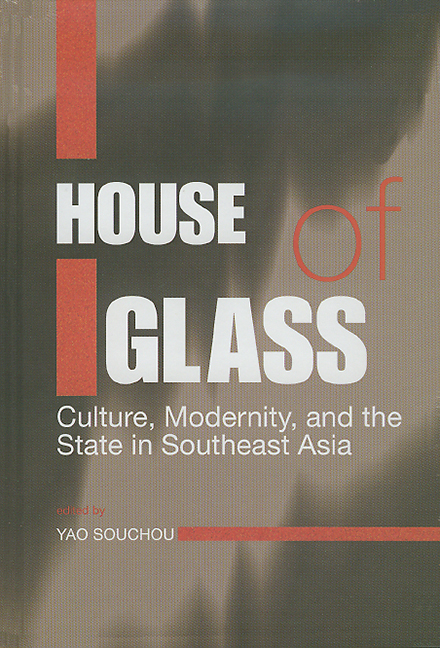Book contents
- Frontmatter
- Contents
- Preface
- Contributors
- Introduction
- Part One Local desire and global anxieties
- 1 Desperately guarding borders: media globalization, “cultural imperialism” and the rise of “Asia”
- 2 Modernity and Mahathir's rage: theorizing state discourse of mass media in Southeast Asia
- 3 Representing state desire and the sins of transgression
- 4 McNationalism in Singapore
- Part Two Identity, the state, and post-modernity
- Part Three State power, development, and the spectre of nation-building
- Part Four
- Index
3 - Representing state desire and the sins of transgression
from Part One - Local desire and global anxieties
Published online by Cambridge University Press: 21 October 2015
- Frontmatter
- Contents
- Preface
- Contributors
- Introduction
- Part One Local desire and global anxieties
- 1 Desperately guarding borders: media globalization, “cultural imperialism” and the rise of “Asia”
- 2 Modernity and Mahathir's rage: theorizing state discourse of mass media in Southeast Asia
- 3 Representing state desire and the sins of transgression
- 4 McNationalism in Singapore
- Part Two Identity, the state, and post-modernity
- Part Three State power, development, and the spectre of nation-building
- Part Four
- Index
Summary
Yellow and white are wise, red and black are stupid; yellow and white are rulers, red and black are slaves; yellow and white are united, red and black are scattered. (Tang Caishang [1867–1900], quoted in Sautman 1995, p. 211)
In his short essay, “Ten Years and a Billion Dollars”, William Burroughs describes “The Walk Exercise” that he gives to his writing students:
The original version … was taught me by an old Mafia Don in Columbus, Ohio: seeing everyone on the street before he sees you. Do this for a while in any neighborhood, and you will soon meet other players who are doing the same thing. Generally speaking, if you see other people before they see you, they won't see you. I have even managed to get past a whole block of guides and shoeshine boys in Tangier this way, thus earning the Moroccan moniker: “El Hombre Invisible”. (Burroughs 1982, p. 49)
Burrough's invisibility is a function of his obviousness and transparency. His strategy of “covert spectacle” combines a poignantly imperial act (the king who vacates his throne to pass unrecognized in his realm) with the petty megalomania of a bourgeois expatriate-on-smack. This notion of a visible “invisibility” recalls Michael Rogin's 1993 musings on the American Pentagon and Edgar Allan Poe's “The Purloined Letter”:
The thief hides the purloined letter, by placing it in plain sight. His theft is overlooked because no attempt is made to conceal it. The crimes of the postmodern American empire … are concealed in the same way. Covert operations actually function as spectacle. (Rogin 1993, p. 499)
The “covert spectacle” is an integral component of contemporary state-craft and the mass commodification of late capitalism, as revealed in the functions of censorship and mass media propaganda. While censorship paradoxically works to make the invisible (the unnoticed) visible through its erasure, displacing original authorship with the signature of the state, in the spectacle of propaganda, the state is reified as this displacing meta-self.
- Type
- Chapter
- Information
- House of GlassCulture, Modernity, and the State in Southeast Asia, pp. 70 - 94Publisher: ISEAS–Yusof Ishak InstitutePrint publication year: 2001



